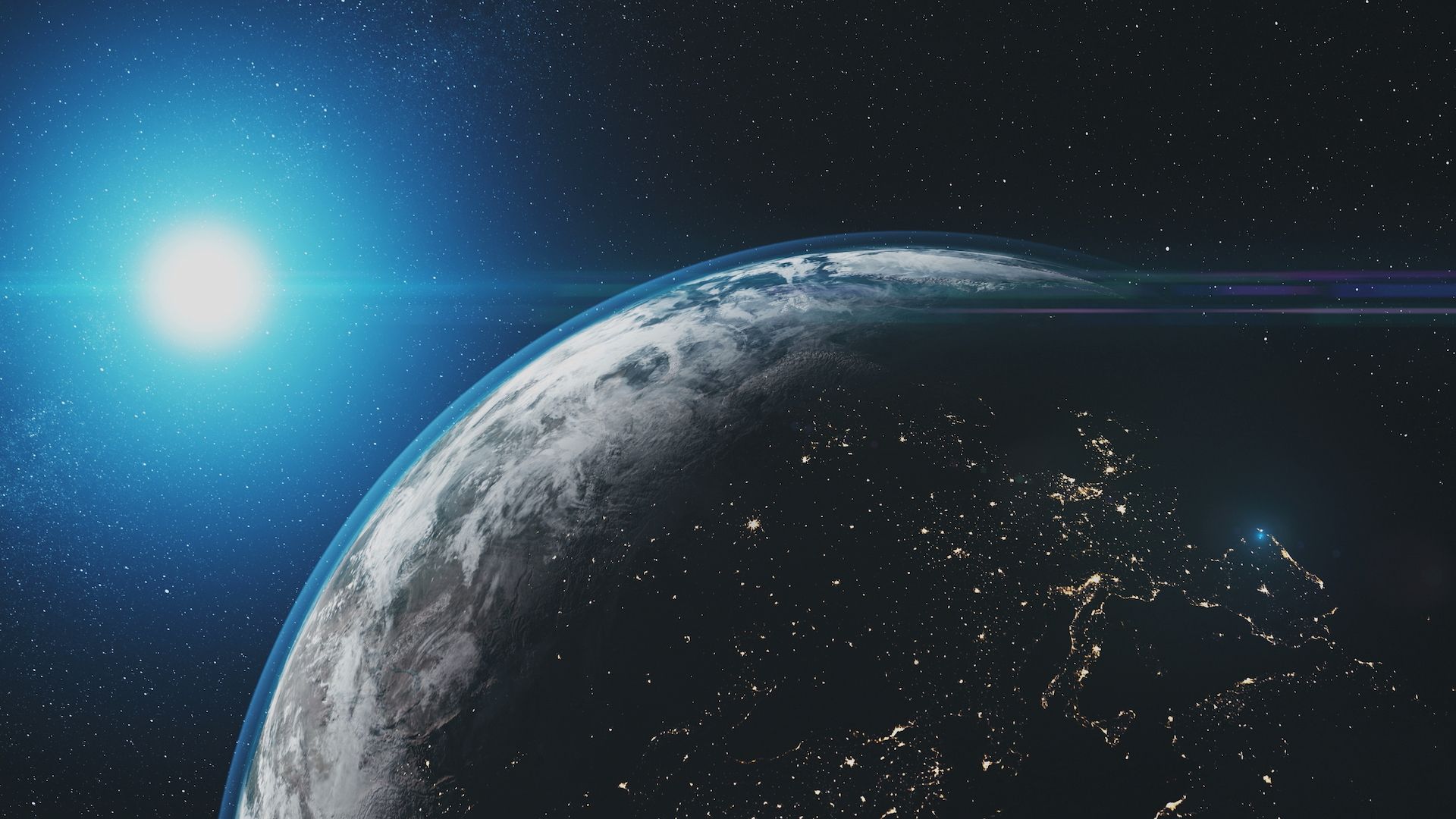Independent lab observes low-temperature recovery of solar cells from radiation damage
TEMPE, Ariz., March 28, 2023 — Solestial, Inc. (“Solestial”), the solar energy company for space, today announced that the French Alternative Energies and Atomic Energy Commission (“CEA”) has independently validated the ability of Solestial’s ultrathin silicon solar cells to effectively anneal radiation damage under sunlight at 90°C. After radiation exposure equivalent to 10 years in low Earth orbit (“LEO”), followed by annealing at 90oC under 1 sun illumination equivalent, the open circuit voltage of Solestial’s silicon solar cells dropped by only 4% and maintained 96% of its initial value. Providing that the operating temperature of the illuminated solar cells in orbit reach similar temperatures periodically, this demonstrates the feasibility of self-curing solar cells with substantially reduced radiation-induced degradation.
The French laboratory’s findings prove that Solestial’s silicon solar cells suffer dramatically less degradation, and can retain greater end-of-life efficiency, than other silicon-based solar products for space. During a 10- year mission in LEO, commonly used III-V multijunction solar panels will lose 10-15% of their beginning of life efficiency due to radiation damage alone. For terrestrial silicon solar panels, the damage will be even greater at 35-40%. Neither III-V nor terrestrial silicon have shown independent laboratory validation of such significant low-temperature annealing.
Solestial’s breakthrough self-curing capability is unmatched in the space industry.
“Low-temperature curing is a critical capability for silicon-based solar products in space. It was important to partner with a globally respected laboratory for independent validation of our unique technology,” said Stanislau Herasimenka, co-founder and CEO of Solestial. “The CEA is a venerated organization with a world-class laboratory; we were thrilled to collaborate with their team. We look forward to further testing with the CEA over the coming months to validate internal annealing results at even lower temperatures. We’re excited to show the space industry the myriad benefits of Solestial’s ultrathin silicon solar cells and blankets.”
Solestial’s silicon solar cells incorporate proprietary defect-engineering technology to self-cure radiation damage, resulting in minimal loss of efficiency over an operational lifetime. When coupled with other advantages of Solestial’s technology, such as readily available raw materials and the use of automated equipment, the result is more affordable, longer lasting, solar cells and blankets with virtually limitless manufacturing capacity.
“Radiation curing technology is an important breakthrough for the space PV [photovoltaics] industry,” said Romain Cariou, space silicon solar applications expert at the CEA. “Annealing of radiation damage in silicon is straightforward at high temperatures, for example, above 200-250°C, but this is not useful for applications in space as these temperatures are rarely, if ever, experienced in situ. The differentiation factor here is that Solestial’s cells can cure radiation damage at normal operating temperatures for solar panels in space. This outstanding property, experimentally verified by CEA teams on state of the art irradiation and characterization platforms, cannot be found in current commercial cell technologies. I’m excited for the possibilities that this technology will unlock for the space PV industry.”
Solestial’s technology has been under development for more than a decade, beginning its life at Arizona State University where the company was first conceived as Regher Solar. Solestial’s technological breakthroughs and superior value proposition are unlocking tremendous commercial demand. Since the completion of its oversubscribed 10- million-dollar seed round in October 2022, the firm has been focused on testing and validation of its technology, hiring, and converting hundreds of millions of dollars of Letters of Intent (“LOIs”) into binding contracts. Commercial customers range from startups to major defense primes and builds on a foundation of more than $2.5 million in SBIR contracts with NASA, NSF, and other government agencies.
About Solestial
Solestial, Inc. is the solar energy company for space. Solestial’s breakthrough technology is a silicon solar cell engineered for space to self-cure radiation damage under sunlight at a normal operating temperature of 80°C. Solestial solar cells are packaged in an ultrathin, flexible, low-mass solar blanket designed to achieve minimum degradation for up to 10 years in LEO. Solestial solar blankets can be produced using automated machines resulting in costs 90% lower than incumbent technologies. Solestial targets 2025 for the launch of a manufacturing facility capable of producing 10 MW/year of solar blankets. From today’s satellite constellations and research projects to tomorrow’s lunar settlements and services in space, Solestial’s innovative technology represents a paradigm shift for space solar; an affordable, scalable solution to power the new space economy. To learn more, visit our website or follow us on LinkedIn, Twitter, Facebook, and Instagram.
About the CEA
CEA is in charge with guiding French public decisions and providing the scientific and technical means that civil society (businesses and local authorities) needs to better manage major societal changes, such as the energy transition, digital transformation, future healthcare, defence and global security.
CEA’s Liten institute, located at the Grenoble CEA centre and the INES (Chambéry) site, is a CEA technological research institute specializing in energy transition technology. Its research activities focus on a number of key areas: solar power, network management, storage, including batteries, and hydrogen, geared to energy efficiency and a circular economy. Its research encompasses diverse applications in the energy generation and distribution markets, transport and industrial processes, and for the environment. CEA’s Liten institute is a member of the Carnot Institute for Future Energy Sources.
Media Contact
Eileen Korte
ek@solestial.com
